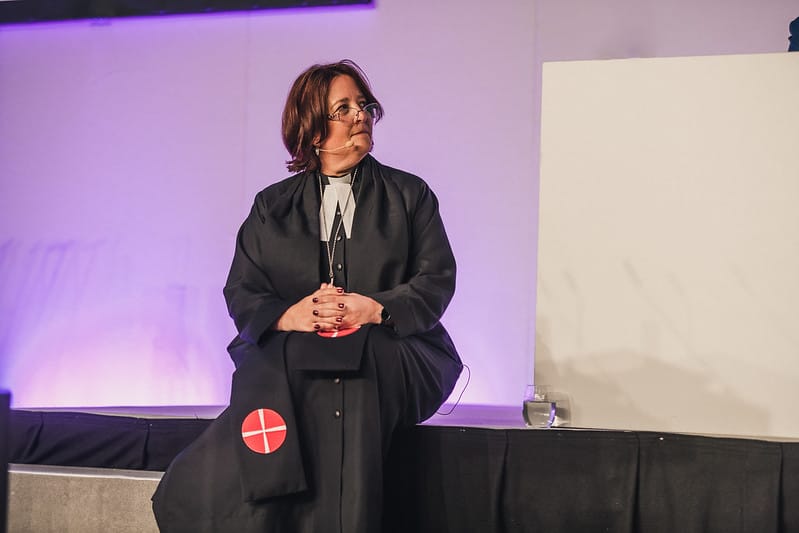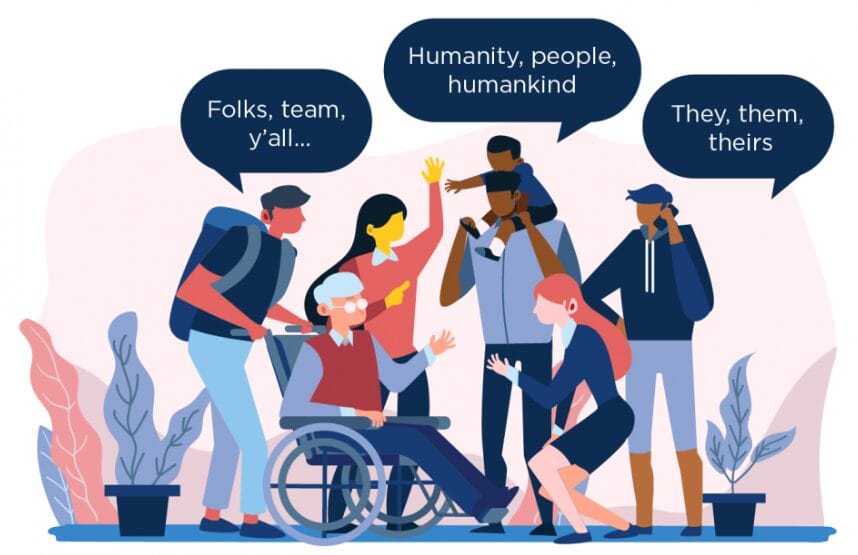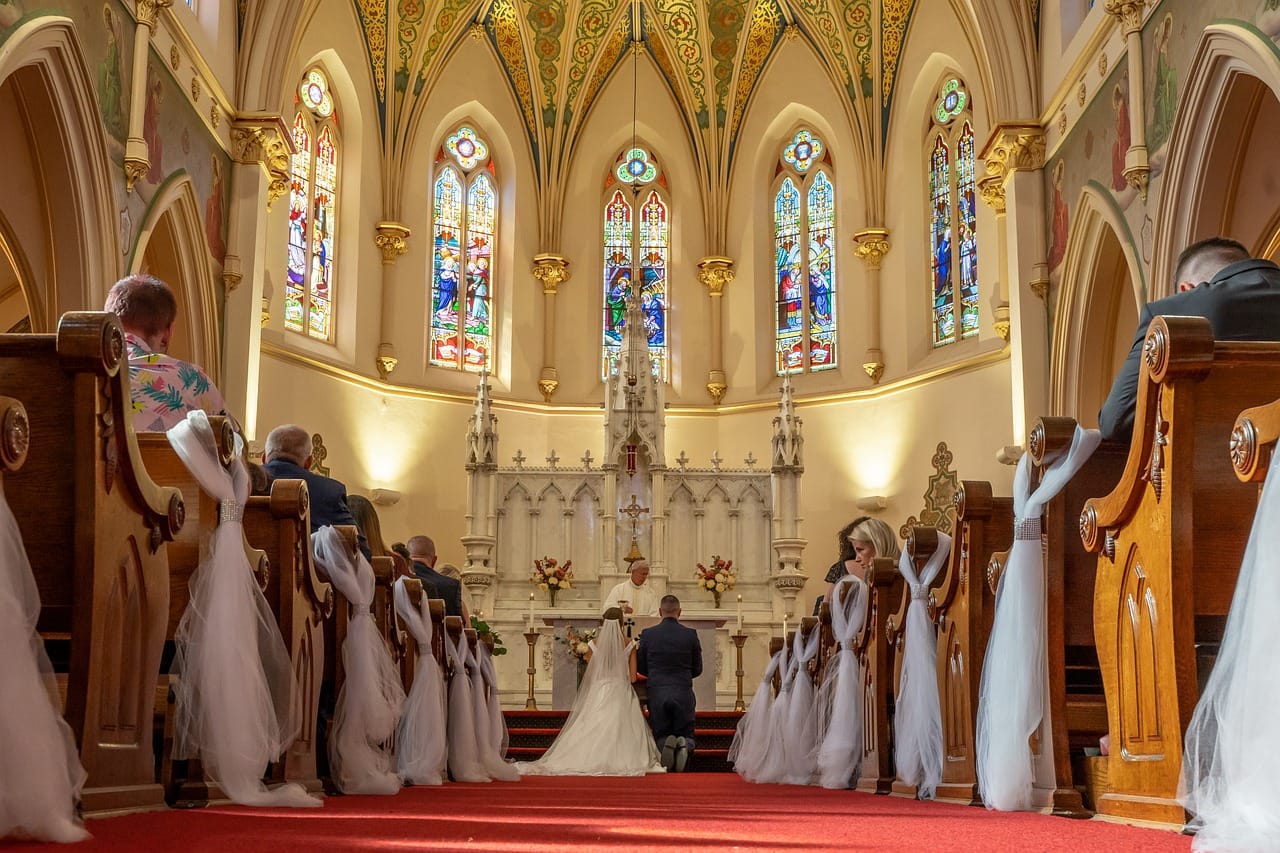At the beginning of 2024, many Russian bloggers were outraged by the news that a large British Christian community had allegedly banned clergy and parishioners from using the words “husband” and “wife” in communication because of their gender connotations. We checked whether such statements are justified.
"Orthodox life", "Russian seven", "Union of Orthodox Journalists” and some other Russian-language media reported that the Methodist Church of Great Britain has issued “Inclusive Language Guidelines”, which include instructions not to use gendered terms “husband” and “wife”. "Crimean newspaper” added that the words “parent”, “partner” or “guardian” will need to be used instead. At the same time, this news was shared by dozens of Telegram channels, whose posts, according to the TGStat service, received a total of more than 680,000 views. Among them "Militarist"(127,000 views at the time of writing this analysis), "Pool N3"(100,000), "Petya the First" (90,000) and "Tsargrad-TV"(61,000). They also wrote about the ban bloggers And users social networks.
At the beginning of January 2024, the Methodist Church of Great Britain published on their website a post written by London pastor Michaela Youngson. The publication was dedicated to the next version of “Inclusive Language Guides”, which this religious community updates approximately every six months. On Yangson's blog explains, that the document approves the use of traditional concepts and terms, while giving people the freedom to express their thoughts in any words they are comfortable with.
The terms “husband” and “wife,” which some Russian media and Telegram channels have defended, are mentioned on the third page of the Guide in the subsection on human relationships:
There is endless variety in how God's creation is expressed in human life. This is worth remembering when we speak and write. Terms like “husband” and “wife” may sound innocuous, but still contain assumptions about family or personal life that may not be true for many people. You can start with the words “parent”, “partner” and “child”. The word “guardian” is also a neutral, but at the same time understandable designation of a person who raises a child, but may not be his parent.
This paragraph is the only place in the document where the words “husband” and “wife” are mentioned. It does not follow from the text of the manual that their use is prohibited among Methodists. Additionally, the Church encourages the use of these words with caution, not because of their gender connotations, but because they can be erroneously applied to couples who are not husband and wife.
In his post, Youngson also mentions these words when talking about wedding ceremonies, which in the UK are often held in a church: “Church leaders who help people prepare for special events such as baptisms, funerals and marriages should use inclusive language and refer to participants as they would like to be called. Along with the traditional phrase "husband and wife", it would be appropriate to use words such as "partner" or "spouse." Youngson is quick to clarify that this does not mean “abandoning any terms, but rather broadening our language to accommodate the inclusive nature of God’s love.”

I gave approximately the same explanation to the agency Reuters Michael Ivatt, senior media officer at Methodist Church UK, said: “Our leadership does endorse traditional terms, but at the same time recognizes that they may not reflect the reality of everyone we serve, such as same-sex couples or those who are unmarried.”
In addition to marital status, the Guide recommends caution in talking about many other characteristics that may accidentally offend people. These include, for example, age, race, sexual orientation, religion, mental illness, disability, migration status and even English language proficiency.
The document devotes a separate paragraph to gender-neutral terms. The Gender section states that you should not use common phrases that could be misinterpreted as favoring one gender over another. For example, the addresses guys and fellows, which in English are often applied to a group of people regardless of their gender, are proposed to be replaced by neutral friends, colleagues or people. The guide also suggests eliminating the gendered verb to man in the meaning of “guard” or “work,” such as in the expressions to man the entrance (“guard the entrance”) or to man the front desk (“work at the front desk”).

There is also a section in the Guide about representatives of the LGBT+ community. In general, the recommendations boil down to addressing them as they prefer to call themselves: “If Gary calls Mike his husband, you should talk about Mike that way too. If Gary and Mike prefer to be called partners, then call them that."
It is noteworthy that the news about the allegedly introduced ban on the use of the words “husband” and “wife” among British Methodists appeared in the Russian information field only in January 2024. First version The church's Inclusive Language Guidelines came out back in February 2022, and the sections on husband and wife terms, gender-neutral language, and the LGBT+ community have remained largely unchanged since 2022.
Thus, contrary to what wrote some bloggers, the Methodist Church of Great Britain did not declare the words “husband” and “wife” offensive, much less prohibit their use. The “Guide to Inclusive Language”, which is referred to by the authors of publications in the media and Telegram channels, does not talk about any prohibitions at all: all examples are advisory in nature. The text repeats 12 times that it is important for a clergyman to listen to how a parishioner speaks about himself: “The way a person identifies and calls himself is always more important than any guidelines or recommendations.”
Cover photo: Pixabay
- Forbes.ru. “Dear client”: why companies need gender-neutral language
- Chalk. “Mx” instead of “Mr” and “Miss”: what is gender-neutral English
- Is it true that the Church of England is planning to consider the idea of a gender-neutral God?
- Is it true that in some Western countries the terms “mom” and “dad” are banned, and “parent 1” and “parent 2” are used instead?
If you find a spelling or grammatical error, please let us know by highlighting the error text and clicking Ctrl+Enter.






